Finding the best flea treatment for cats is vital for their health and your home. Fleas can cause itching, skin infections, and even spread diseases. So, effective treatment should be a priority for every cat owner.
With many products claiming quick results, how do you choose the right one? In this post, we’ve gathered the best flea treatments for cats that truly work.
Whether you need spot-on solutions, oral meds, or natural options, our picks are trusted by vets and loved by pet owners. Say goodbye to guesswork—these proven treatments will keep your cat itch-free, healthy, and happy.
Topical Treatments
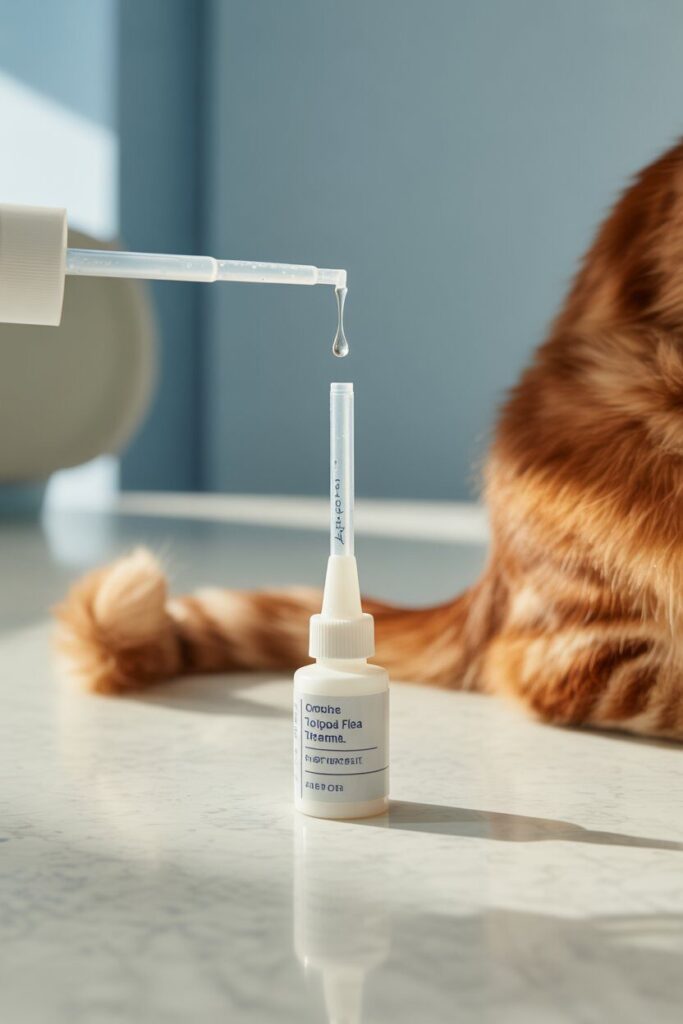
Topical treatments are easy to use and effective at controlling fleas on your cat. They usually come in small tubes, which makes it simple to apply the liquid between your cat’s shoulder blades.
Most topical flea treatments kill fleas on contact, stopping them from biting your pet. These treatments last about a month, giving you long-lasting protection and peace of mind.
These products can also guard against other pests like ticks and lice, ensuring complete protection for your cat. Always follow the instructions to get the best results and keep your cat healthy and happy.
Shop the top-rated flea treatments for cats on Amazon today
Oral Medications
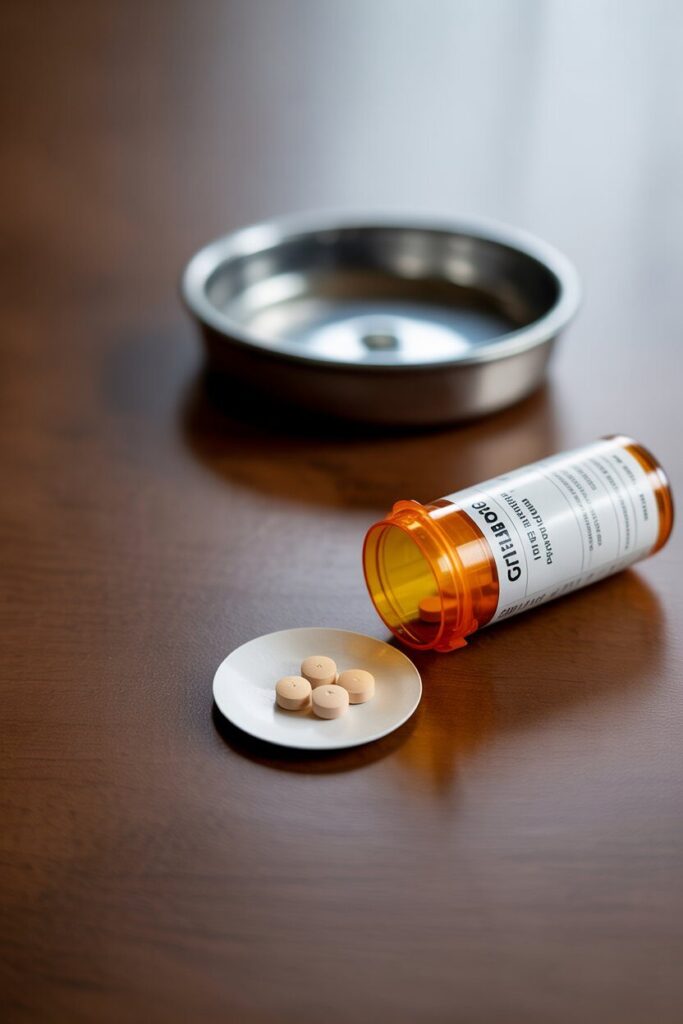
Oral medications are an easy and effective way to protect your cat from fleas. These treatments work from the inside out to kill fleas fast, providing long-lasting protection.
One of the best options for flea control is oral medications. They are simple to give and don’t involve messy applications. You can mix them with food, making it stress-free for both you and your cat.
Oral flea treatments have another advantage. They don’t wash off during baths or swimming. This ensures your cat stays protected, unlike topical treatments that can lose effectiveness when wet.
Flea Collars
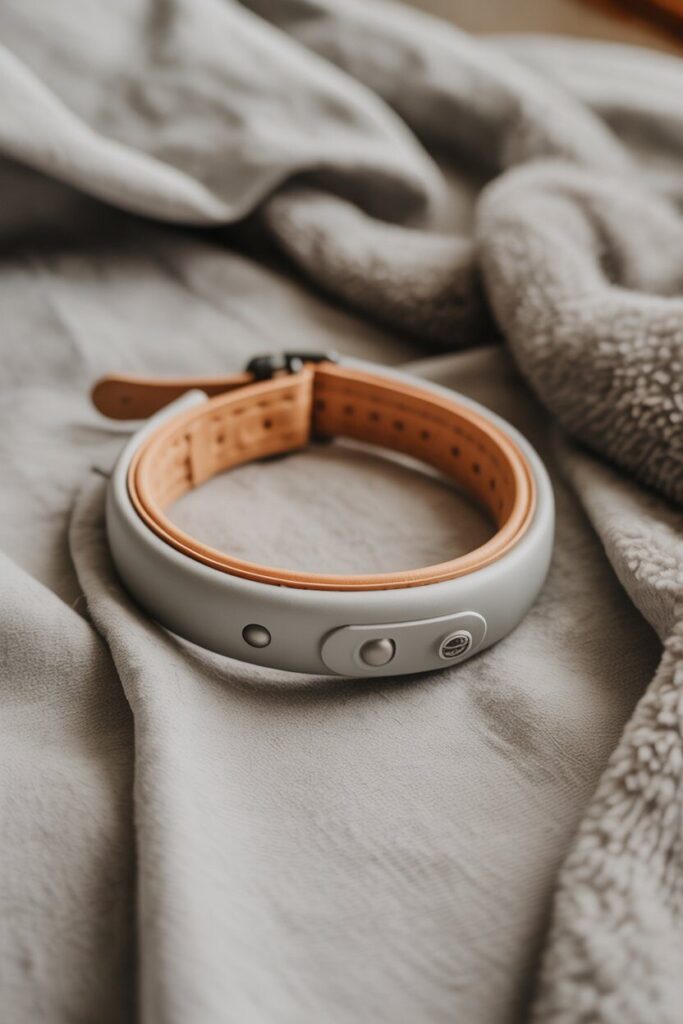
Flea collars provide long-term relief from fleas for your cat. They’re easy to use and can keep fleas away for months, reducing the need for frequent treatments.
These collars release small amounts of flea-killing ingredients over time. This keeps your cat protected without messy spot-on treatments.
A good flea collar can also repel ticks and other pests. This dual action helps your pet stay healthy and comfortable, making it a popular choice for pet owners.
Check out these trusted cat flea solutions now available on Amazon
Flea Shampoos
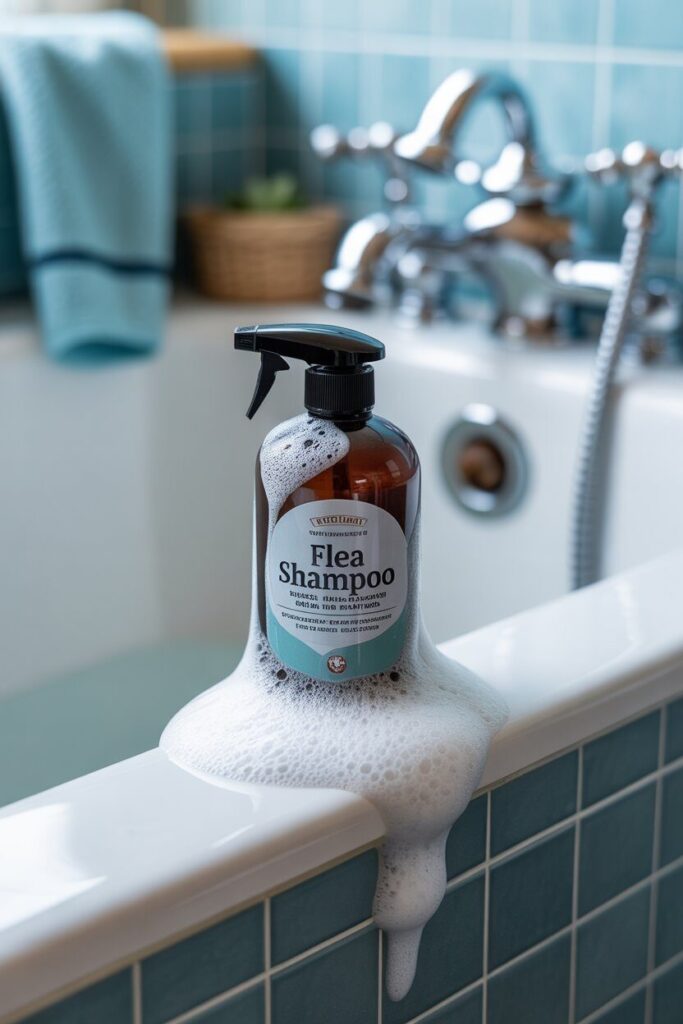
Flea shampoos help remove fleas and keep your cat’s fur clean. They are simple to use and can quickly relieve itching and discomfort from fleas.
When picking a flea shampoo, choose one made for cats. Some shampoos have gentle ingredients that won’t irritate your cat’s skin while killing fleas and their eggs.
Using flea shampoos regularly can help prevent future infestations. Also, consider using other flea treatments, like collars or spot-on treatments, for better flea control.
Flea Sprays
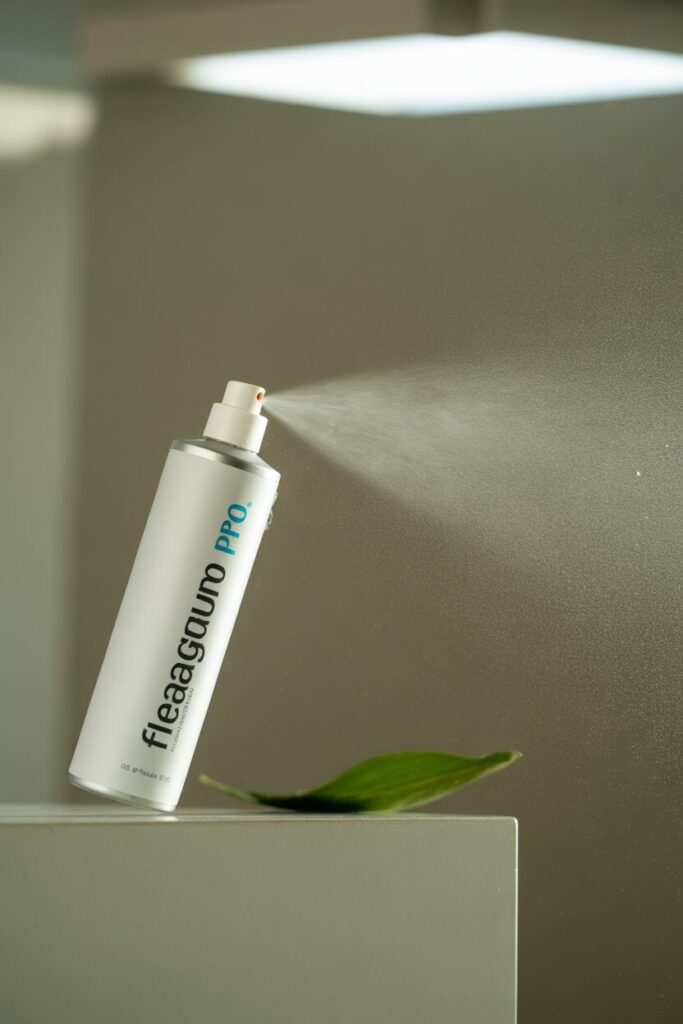
Flea sprays are a quick and easy way to tackle flea issues on your cat. You can spray them directly onto your pet’s coat. They kill fleas on contact and offer fast relief. This makes them one of the top flea treatments for cats.
One key benefit of flea sprays is their simplicity. Just spray your cat’s fur. This saves you from the trouble of giving pills or using collars. It’s a straightforward way to keep your cat flea-free.
Flea sprays also provide lasting protection. Many contain ingredients that repel fleas and other pests. This helps prevent future infestations. Their dual action makes them a smart choice for your cat’s health.
Find the best working flea treatments for cats directly on Amazon
Flea Combs
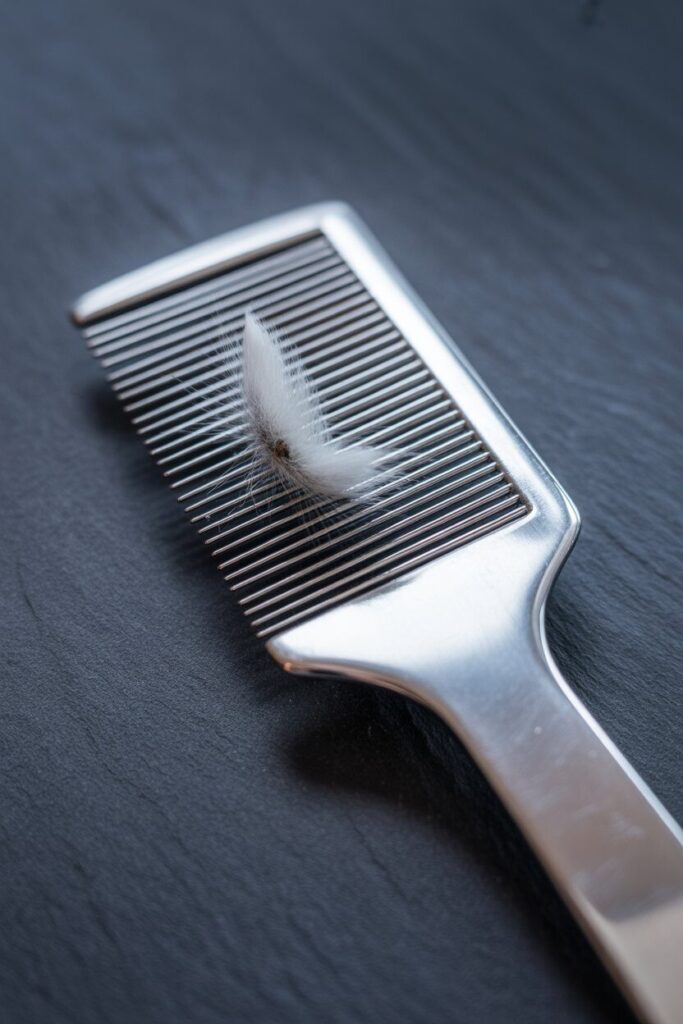
Flea combs are effective for removing fleas and dirt from your cat’s fur. They have fine teeth that catch and pull out fleas and their eggs. This gives your pet relief and keeps their coat clean.
Using a flea comb regularly helps you check for signs of a flea infestation. Catching fleas early allows you to act quickly. This prevents fleas from spreading and causing more discomfort to your cat.
Flea combs also help you bond with your cat. Grooming can be relaxing for both of you. It makes it easy to check for fleas and other issues while keeping your cat’s coat healthy and shiny.
Natural Remedies
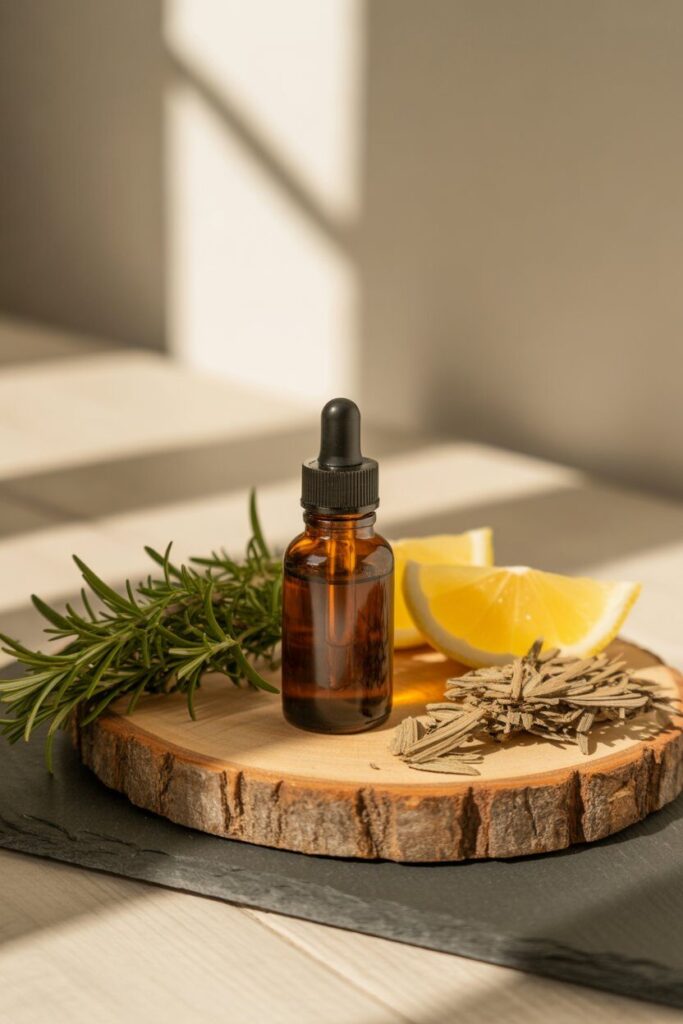
Using natural remedies for flea control in cats can be safe and effective. Essential oils like lavender, cedarwood, and lemongrass help repel fleas. Always dilute these oils and use them sparingly to prevent irritation.
You can make a homemade flea spray with apple cider vinegar and water. Lightly spray this mixture on your cat’s fur to keep fleas away. Avoid the face area, and consult your vet before using it.
Regular grooming and bathing with gentle, natural shampoo also help prevent fleas. Combing your cat’s fur with a fine-toothed flea comb removes fleas and their eggs. This reduces the chance of an infestation.
Monthly Spot-On Treatments
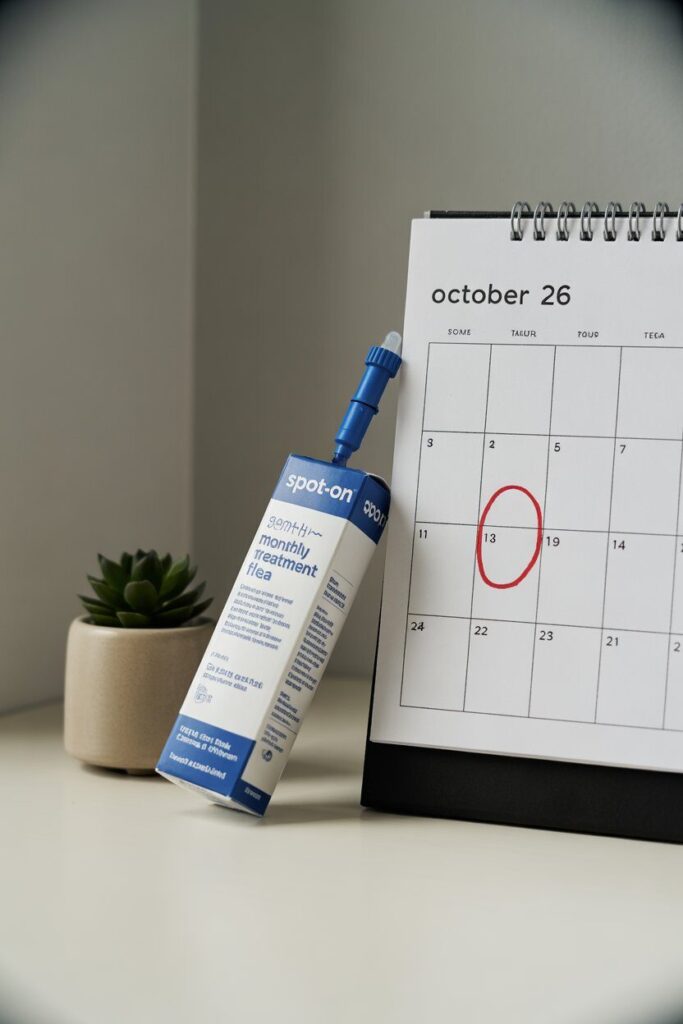
Monthly spot-on treatments are an easy and effective way to keep your cat flea-free. They’re simple to apply and provide lasting protection for the entire month.
These treatments kill fleas on contact. This stops infestations from starting and keeps your cat comfortable and healthy. They also lower the risk of flea-borne diseases.
Spot-on treatments come in small tubes. You apply them directly to your cat’s skin. This allows for quick absorption and immediate action. It’s a hassle-free method to protect your cat from fleas.
Prescription Flea Pills
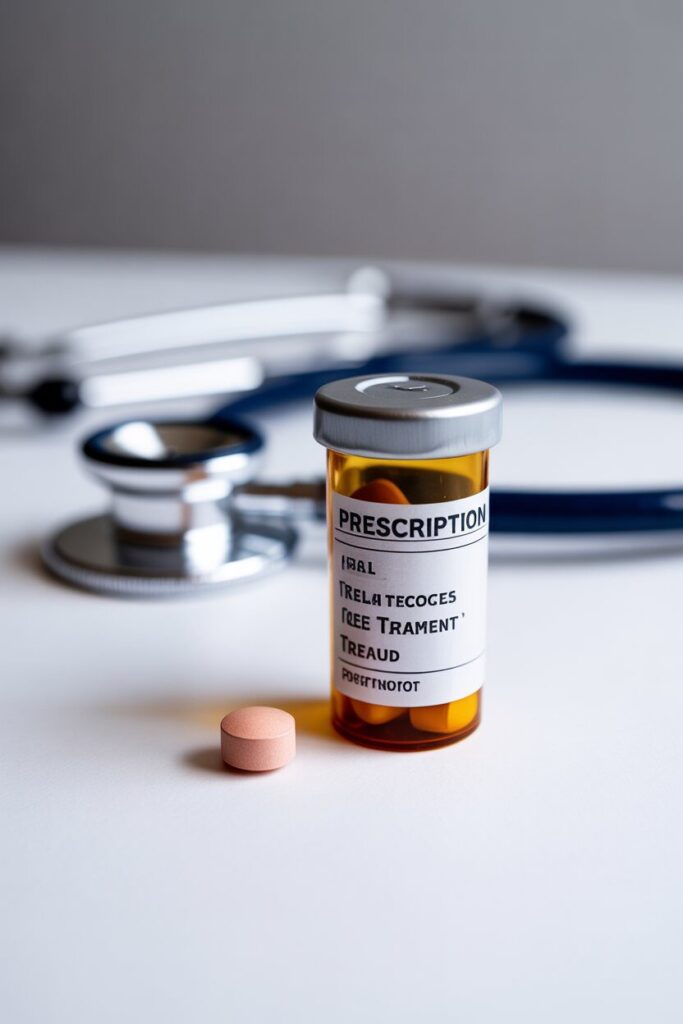
Prescription flea pills kill fleas quickly. Your vet prescribes these medications for fast relief from infestations. They are a great option for immediate treatment.
One benefit of these pills is long-lasting protection. They can kill fleas for up to a month. This keeps your pet flea-free longer than over-the-counter options.
These pills are also safe for your pet when used as your vet directs. They target fleas specifically without harming your cat. This offers peace of mind regarding your pet’s health.
Flea Powders
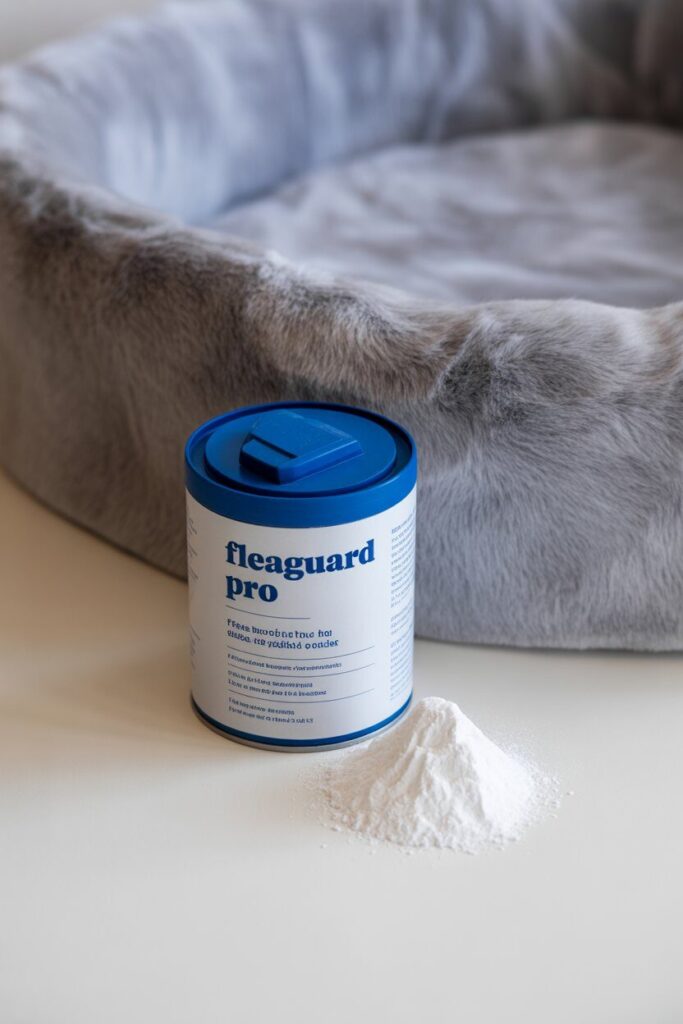
Flea powders can be sprinkled on your cat to kill fleas and their eggs. This method works for both adult fleas and their eggs, solving your pet’s flea problem.
Using flea powder helps eliminate fleas and lowers the risk of flea-borne diseases. Regular use keeps your cat comfortable and healthy.
For best results, apply the powder directly to your cat’s fur. Focus on areas where fleas like to hide. Always follow the product instructions for safety and effectiveness.
Flea Dips
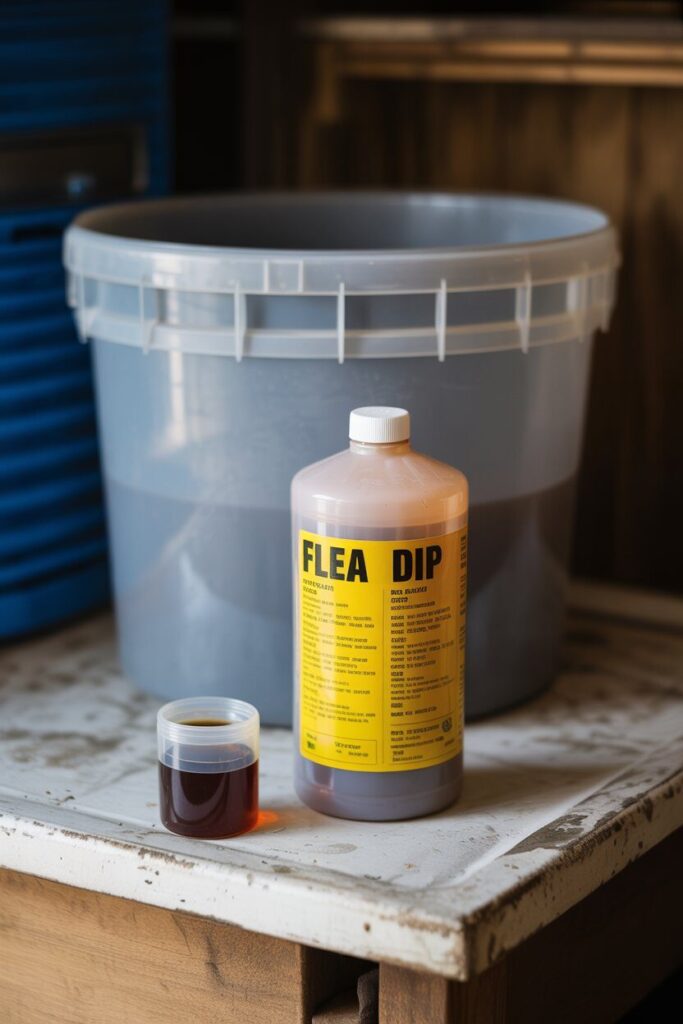
Flea dips are a good option for serious flea problems in cats. The strong solution kills fleas on contact and gives quick relief. This method works well when others fail.
Handle flea dips carefully to keep your cat safe. Follow the instructions closely. Avoid getting the solution in your cat’s eyes, nose, or mouth. Rinse thoroughly to remove any residue.
Flea dips can be effective, but use them sparingly. Overuse may cause skin irritation or other health issues. Consult with a vet to see if this treatment suits your cat’s flea issue.
Home Flea Treatments
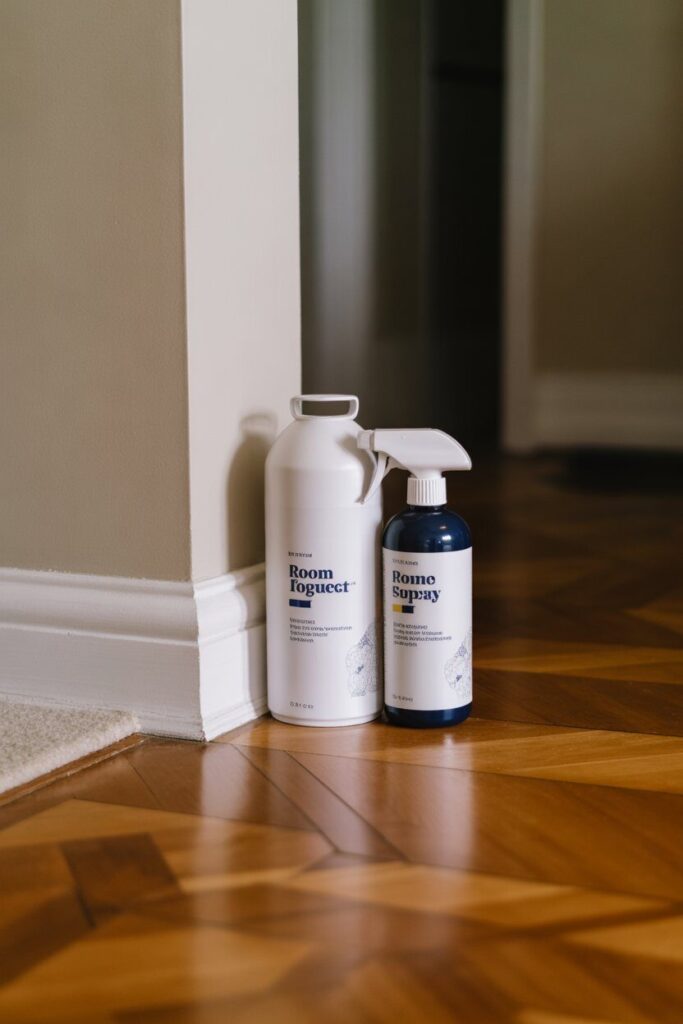
Treating your home is key to getting rid of fleas. Start by vacuuming carpets, rugs, and furniture. This removes eggs and larvae, cutting down the flea population. It also makes other treatments work better.
Wash your pet’s bedding and any fabric items they use in hot water. This eliminates any remaining fleas and stops re-infestation. Do this regularly to keep your home flea-free.
Using a flea spray or fogger can help with hard-to-reach areas. These products kill fleas on contact and keep working for weeks. Always follow the label instructions for safe and effective use.
Flea Prevention Tips
Regular grooming and checking your cat’s fur helps catch fleas early. Use a fine-toothed comb to remove fleas and their eggs. This simple routine can prevent a bigger infestation.
Keeping your home clean is key in stopping fleas. Vacuum carpets, furniture, and your cat’s bedding often. Washing your cat’s bed in hot water can also help get rid of fleas and their eggs.
Consider using a flea treatment recommended by your vet. These treatments can effectively keep fleas away. Follow the instructions carefully for the best results and to keep your cat safe.
Vet Consultations
Regular vet visits keep your cat healthy and flea-free. During these visits, the vet checks for signs of illness or parasites. This helps catch problems early.
A vet can recommend the best flea treatment for your cat. They guide you on effective products and proper usage. This prevents infestations and keeps your cat comfortable.
Routine vet visits also include vaccinations and health checks. These consultations help detect underlying health issues early. This ensures your cat receives the necessary care and lives a long, healthy life.
Combination Treatments
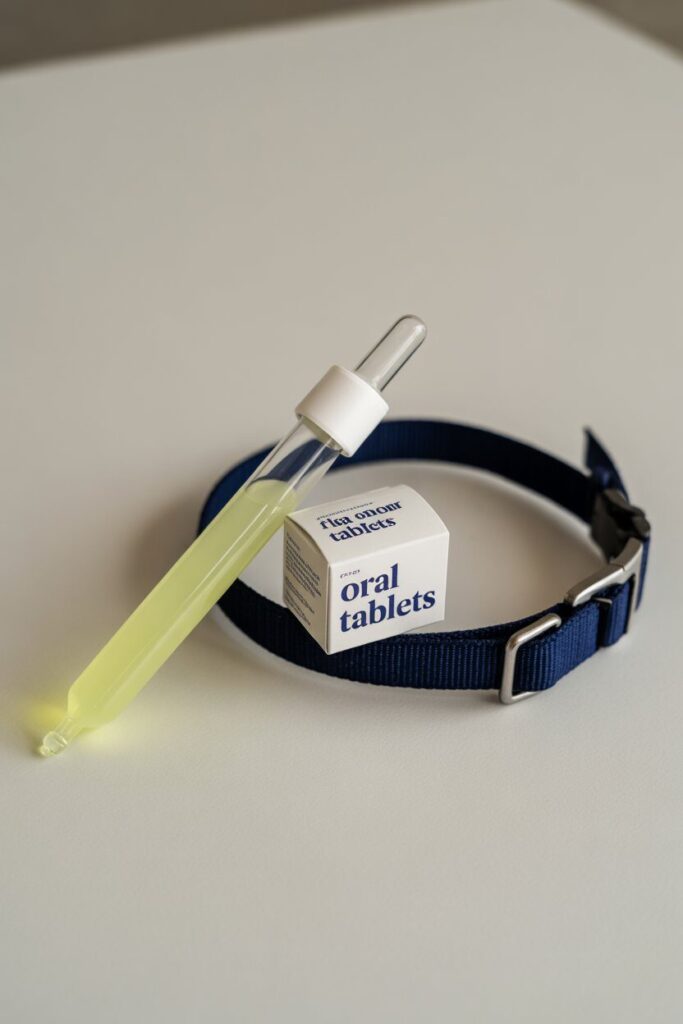
Combination treatments protect your cat from fleas and other pests. They usually have several active ingredients that work together to keep your pet safe.
Using these treatments saves you time and effort because they tackle multiple problems at once. This is especially useful if your cat is prone to different types of pests.
Many combination treatments come in easy forms, like topical solutions or chewable tablets. This makes it simple to give your cat the protection they need without juggling multiple products.
Conclusion
These 15 vet-approved flea treatments provide options to keep your cat healthy and flea-free. You can choose from topical solutions, oral medications, or collars. Always ask your vet for advice on the best treatment for your pet.
What Is the Most Effective Flea Treatment for Cats?
The best flea treatment for your cat depends on its needs and lifestyle. For quick relief, many vets suggest oral flea meds or monthly spot-on treatments. These options act fast and offer protection for several weeks.
Some combination treatments also guard against other pests, like ticks. Talk to your vet to find the best choice, especially if your cat has sensitive skin or health concerns.
Are Natural Flea Remedies Safe for Cats?
Natural remedies like essential oils and apple cider vinegar sprays can repel fleas. However, use them carefully. Cats are very sensitive to some oils. It’s crucial to dilute them and avoid toxic ingredients.
Always consult your veterinarian before trying any homemade treatment. They can recommend safe methods and suggest natural products made for cats.
How Often Should I Treat My Cat for Fleas?
Flea treatment frequency varies by product. Most topical and oral treatments last around 30 days. Flea collars can protect for up to 8 months.
Using treatments regularly is crucial to keep fleas away. You should also treat your home and maintain good grooming habits to avoid reinfestation.
Can I Use Dog Flea Treatment on My Cat?
Do not use dog flea treatments on your cat. Many dog products have permethrin, which is toxic to cats. Even a small amount can cause serious health issues.
Always pick flea products labeled for cats. Follow the instructions closely. If you’re unsure, ask your vet for help.
Do I Need to Treat My Home If My Cat Has Fleas?
Yes, treating your home is as important as treating your cat. Fleas lay eggs that drop into carpets, furniture, and bedding. This can cause ongoing infestations.
Vacuum your home often. Wash your cat’s bedding in hot water. Use flea sprays or foggers to get rid of hidden fleas and their eggs. A clean home protects both your pet and your family.
